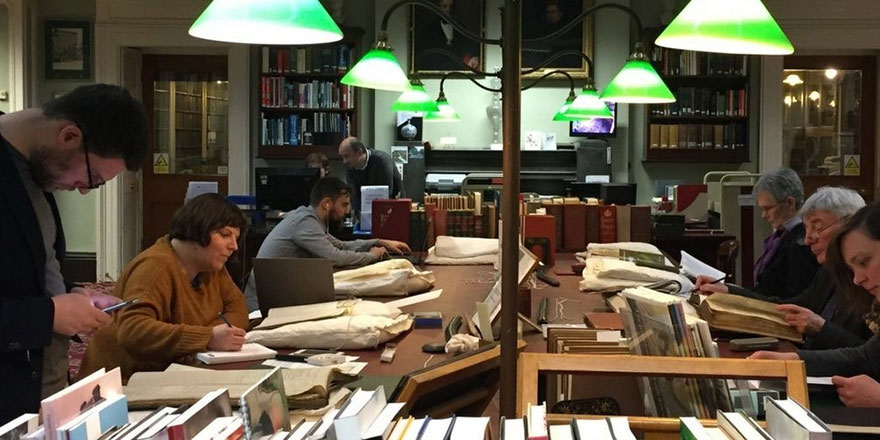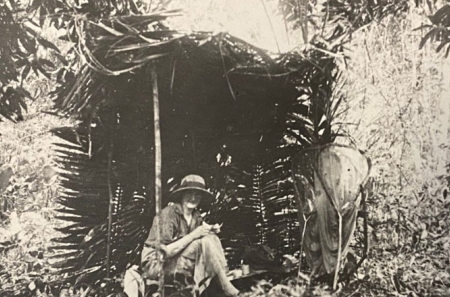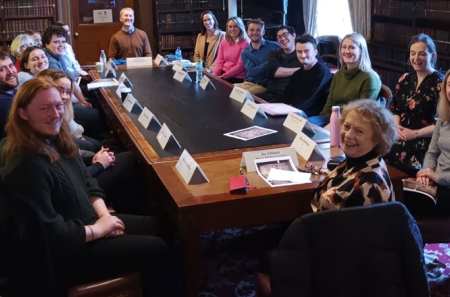
Libraries and Archives Roundtable
23 May 2019Forum facilitating discussions on library and archive issues in relation to heritage and culture, with a particular focus on Heritage 2030.
Invited participants from the higher education, library, archive and publishing sectors gathered at the Royal Irish Academy on 14 May for a forum convened by the Academy’s Working Group on Culture and Heritage. Co-chaired by Professor Mary O’Dowd MRIA and Siobhán Fitzpatrick, Academy Librarian, the forum facilitated discussions on library and archive issues in relation to heritage and culture, with a particular focus on Heritage 2030.
Four directors, two from cultural institutions, Dr Sandra Collins, National Library of Ireland and Mr John McDonough, National Archives (NI), together with Dublin City Librarian, Ms Mairéad Owens, and Dr Peter Crooks, Director of the Beyond 2022 Project, spoke to their institutional remits, contextualised the operational environments and collections, and instanced the challenges and opportunities facing libraries and archives in relation to heritage collections. The chair of this session also called upon Professor Brian O’Neill, TU Dublin and chair of Media Literacy Ireland, to brief the audience about the role of media literacy in creating a robust, informed citizenry, capable of distinguishing facts from fake news/propaganda — a topic relevant to heritage collections and even more pertinent to electronic and web content.
The audience were then invited by Professor O’Dowd to contribute to the debate. The democratic bases for all libraries and archives were reiterated by all as well as
- the imperatives to collect and open up trusted and authentic resources to all constituencies and communities;
- the positive role of libraries and archives for all from childhood to old age and their engagement in facilitating lifelong learning opportunities;
- the provision of funding for the National Library’s in-house storage needs and provision in the National Capital Programme 2040 for the Archive Repository Project at the National Archives were welcomed.
The forum revealed similar challenges and perceived opportunities for many of the contributors and other participants. These included:
- The fragmentation of funding sources
- The need for a broader understanding of culture
- The responsibility of protecting the historical and current collections in our care
- Gaps in the National Archives Act 1986 whereby records of state bodies established post 1986 do not come under the National Archives remit
- Addressing not only the loss of a millennium of records (1922) but also the legacy of state neglect for decades thereafter
- Addressing societal change; Making collections available and accessible on an inclusive basis — children, diverse groups. Addressing diversity and inclusion in a multicultural society;
- Ensuring visibility
- Securing emails and other electronic content, ensuring its authenticity and making it searchable is a significant issue
- The need for more informed tourism offerings — there is a disconnect between research and expert knowledge and tourism; there is a need for statements and publications to be informed by authoritative sources. There could be ways to reach out to the tourism bodies via a trusted forum, e.g. an advisory committee for the heritage sector
- There is a received view of archives and libraries as contributors to the economy but they are also net longterm contributors to education and culture
- Issues of storage space and the potential for collaborative storage solutions resonate with many of the libraries
- Ongoing challenges and resource issues re making records more accessible to users and preserving digitised and born-digital records
- How do we educate people to be media savvy? And how do we ensure that the content and the media we are using today will (a) endure and (b) be intelligible to tomorrow’s generation.
- All of the repositories engage in collaborations and partnerships in order to advance the public good — together we can achieve more.
The Royal Irish Academy Culture and Heritage Working Group will now compile a consultation paper based on the discussions that took place. This will lead to an Academy briefing paper for the Department of Culture, Heritage and the Gaeltacht.


